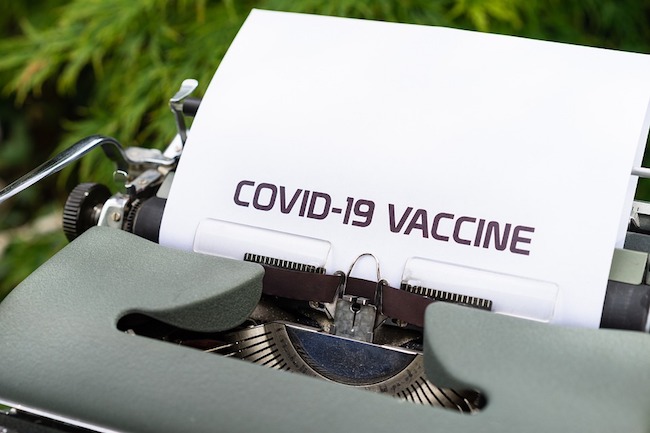Dr. Holick: Having sufficient vitamin D could help reduce risk of getting COVID-19 By Kevin Hughes for Prevention
Dr. Michael Holick, a leading authority on vitamin D in the United States, said that being vitamin D sufficient will help reduce the risks of morbidity and mortality from the Wuhan coronavirus (COVID-19).
“There are several other studies that basically confirm these observations. So there is good evidence and there were association studies to suggest that improvement in vitamin D status can reduce risk for acquiring the infection,” said Holick during the Jan. 3 episode of “The Dr. Hotze Report” with Dr. Steve Hotze on Brighteon.TV.
Hotze, the founder and CEO of Hotze Health and Wellness Center in Houston, Texas, took note that vitamin D is a very essential nutrient in our body that enables us to maintain good health, helps prevent cancer, helps build a healthy immune system and helps build good cardiovascular function.
Holick, a director of Clinical Research at Boston Medical Center, said that he began to realize that vitamin D is an important immunomodulator at the onset of the pandemic in March 2020. Being vitamin D deficient, he said, may increase the risk of acquiring the infection.
While working with Quest Diagnostics, he looked at 191,000 COVID positive patients throughout the U.S. and found that having a blood level of 25 dihydroxyvitamin D greater than between 20 versus greater than 34 nanograms per ml reduced the risk of acquiring the infection by more than 50 percent.
“We found that no matter what their age, as long as they had normal weight, and they had a vitamin D status that was consistent with being vitamin D sufficient, it reduced their risk of morbidity and mortality,” said Holick, who has been involved with vitamin D research since he was a graduate student.
“And if you do have the infection, reducing the complications associated with it including possibly reducing the cytokine storm because vitamin D is playing a critical role in immunomodulation.”
Holick, who was responsible for identifying the major circulating form of vitamin D in human blood known as 25-hydroxyvitamin D3, stressed that vitamin D is needed from birth until death.
He added that essentially every cell in our body has a vitamin D receptor that recognizes the active form of vitamin D, and as a hormone we can only make it in our skin when we are exposed to sunlight or if you consume it in your diet – which requires it to get activated first in the liver.
Sun exposure is major source of vitamin D
The director of the Bone Health Care Clinic and the Heliotherapy, Light and Skin Research Center at Boston University Medical Center emphasized that the major source of vitamin D for humans is sun exposure and there is essentially no vitamin D in our diet. He took note that oily fish like salmon contains about 500 to 1,000 units and a serving of 3.5 ounces, while cod liver oil contains about 400 units of vitamin D per one per tablespoon.
Milk and orange juice, according to Holick, are fortified with vitamin D but they only have 100 units.
Hotze also took note of the fact that most Americans are low in vitamin D because they spend more time indoors, and that when they put on all sorts of lotions or creams that block the ultraviolet light when they go out.
Holick said that “aging has no effect on vitamin D absorption,” and pointed out that there’s a lot of benefit for pregnant women to improve their vitamin D status.
According to Holick, there is good evidence that vitamin D deficiency during childhood may increase risk for type 1 diabetes throughout the rest of your life. He added that a study done at Harvard University showed that individuals that had the highest intake of vitamin D reduce their risk of developing multiple sclerosis by more than 40 percent. (Related: Vitamin D deficiency increases spread of disease.)
The doctor also said that improving your vitamin D status by 1,000 units a day could reduce risk of colorectal cancer by as much as 50 percent. He also indicated that there is evidence that our cardiovascular system have receptors for vitamin D that help to regulate our blood pressure and heart function.
Holick added that vitamin D is critically important for bone health because it is the only hormone that tells our intestine to efficiently absorb dietary calcium.
Watch the full Jan. 3 episode of “The Dr. Hotze Report” below.




